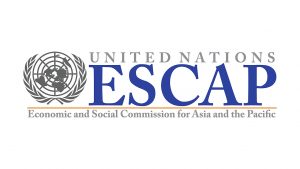THE PHILIPPINES improved its score in an international index of trade facilitation, the United Nations Economic and Social Commission for Asia and the Pacific (UNESCAP) said.
The UN Global Survey on Digital and Sustainable Trade Facilitation graded the Philippines’ implementation rate at 87.1% this year, against 86.02% in 2021.
The survey tracks progress made on the implementing trade facilitation measures. It evaluates transparency, formalities, institutional arrangements and cooperation, paperless trade, and cross-border paperless trade.
“In the Asia-Pacific region, implementation increased by about three percentage points since 2021, with the highest rates observed in Australia and New Zealand and East and North-East Asia,” UNESCAP said in a statement.
In Southeast Asia, the Philippines had the second highest trade facilitation rate, alongside Indonesia and Malaysia (also 87.1%), and behind Singapore (96.77%).
It scored better than Thailand (84.95%), Cambodia (80.65%), Brunei (78.49%), Vietnam (74.19%), Laos (67.74%), Myanmar (61.29%), and Timor-Leste (30.11%).
“Progress has been observed in more efficient trade facilitation with the overall implementation rate of general and digital trade facilitation measures increasing by more than six percentage points between 2021 and 2023,” UNESCAP said.
“The global average implementation rate currently stands at 68.7%. The highest implementation rate is seen in developed economies (85.3%), followed by countries in South-East and East Asia (76.6 %),” it added.
The Philippines scored 100% in terms of transparency and formalities, which means the country fully implements the trade measures under this metric.
Transparency includes measures such as the publication of existing import-export regulations on the internet, advance rulings on tariff classification and origin of imported goods, and stakeholder consultations on new draft regulations, among others.
Formalities refer to risk management, post-clearance audits, expedited shipments, and pre-arrival processing, among others.
Meanwhile, the score for institutional arrangement and cooperation stood at 77.78%.
The survey noted that the Philippines only partially implements a national legislative framework and/or institutional arrangement for border-agency cooperation, as well as government agencies delegating border controls to Customs authorities.
In terms of paperless trade, the Philippines’ implementation progress received a grade of 85.19%. These include automated Customs systems, e-payment of duties and fees, and electronic submissions of declarations, sea or air cargo manifests.
Its lowest score was in cross-border paperless trade at 66.67%.
The Philippines only partially implements all measures under this metric, which includes laws and regulations for electronic transactions and electronic exchange of certificate of origins. — Luisa Maria Jacinta C. Jocson

